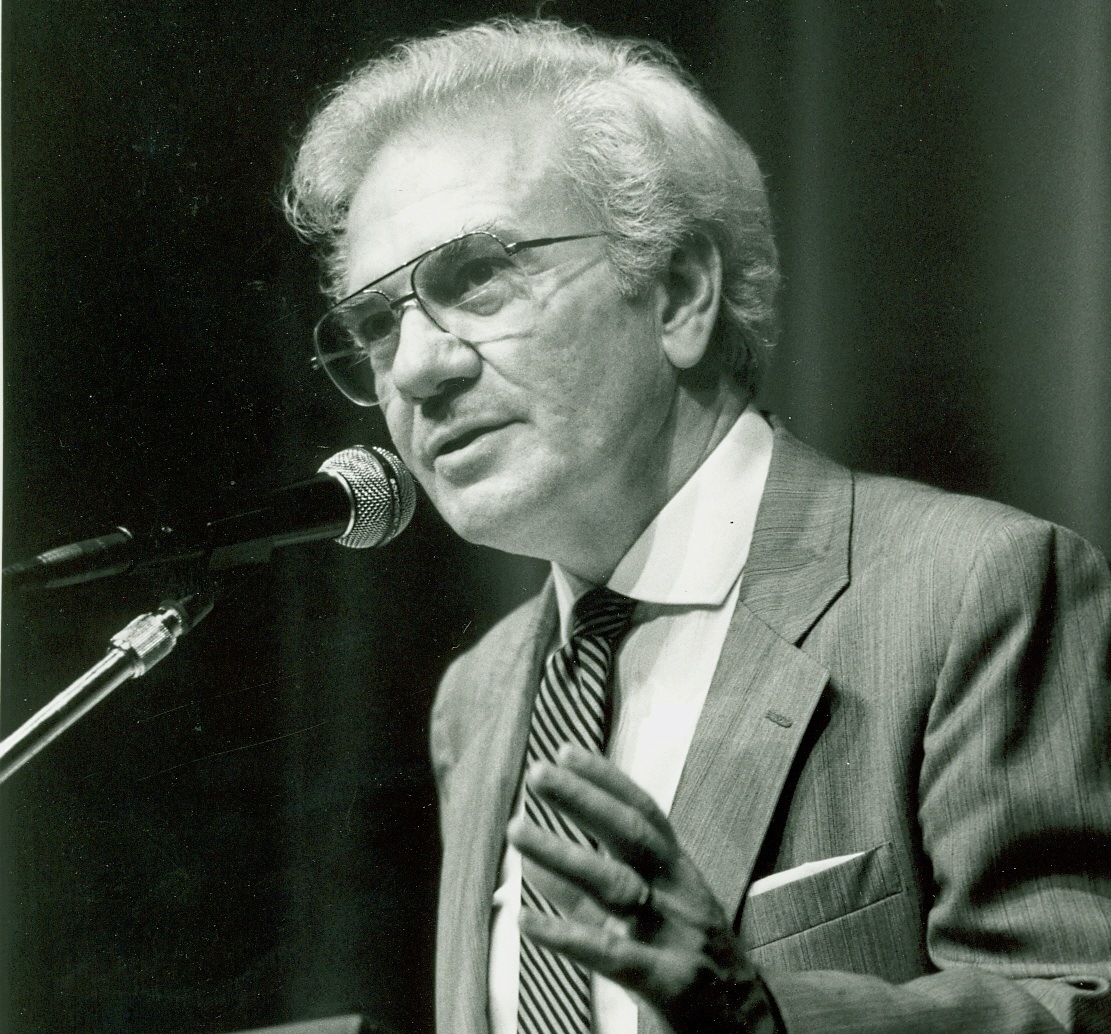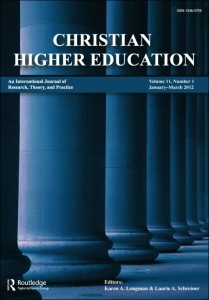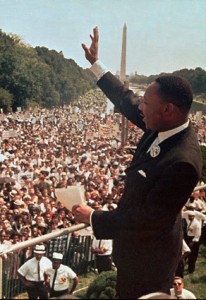Editor’s Note: This “Scholarship Spotlight” is the first of what we hope will become a regular or semi-regular series of posts on the site. The goal with these posts is to highlight scholarly projects that utilize (in part or fully) the resources of the Boyer Center Archives, particularly the digital collection. Stay tuned for future entries in this series!
—
“Creative Calls for Coherence: Ernest L. Boyer and Christian Higher Education” was the theme for a special 2014 issue of Christian Higher Education, a peer-reviewed scholarly journal focused on issues and problems in contemporary Christian higher education. Published by Taylor & Francis, the issue is available online for free.
Guest edited by Taylor University scholar Todd C. Ream, the special issue explores Boyer’s considerable influence on education, especially Christian higher education.
The issue focuses on Boyer’s “creative call for coherence.” As explained in a preview for the issue:
[Boyer’s creative call for coherence], or his compulsion to draw together the frayed intellectual and/or social threads defining our society, offers a powerful means of assessing his significant impact on education. Although anecdotal evidence indicates Boyer’s ideas influenced a number of Christian colleges and universities, no systematic efforts come to terms with this influence. This theme issue attempts to provide some basic frameworks for further research efforts while also looking at the impact Boyer’s Christian college experiences had upon him.
The first half of this issue seeks to introduce Boyer’s life, his faith, and the influence of Christian higher education on him. The second half of this issue is topical in nature and explores Boyer’s influence on some critical dimensions of the lives of Christian colleges and universities.
In his opening article, Ream highlights the work of the Boyer Center Archives in preserving and making accessible Boyer’s intellectual legacy:
Although Boyer passed away almost 20 years ago, his work continues to receive considerable interest absent a biography of him in any form. Most of Boyer’s publicly accessible works are found in reports published by the Carnegie Foundation for the Advancement of Teaching. For example, in Creating Campus Community: In Search of Ernest Boyer’s Legacy (Jossey-Bass, 2002), William M. McDonald and associates reviewed the impact Boyer’s reports had on how educators now design both curricular and cocurricular learning communities. In a comparable sense, John Braxton, William Luckey, and Patricia Helland’s Institutionalizing a Broader View of Scholarship Through Boyer’s Four Domains (Jossey-Bass, 2002) considers the impact of the ideas Boyer offered in Scholarship Reconsidered: Priorities of the Professoriate (Carnegie Foundation for the Advancement of Teaching, 1990).
However, until recently a considerable number of Boyer’s ideas remained inaccessible to the general public. Initially, Boyer’s unpublished papers were housed in Princeton, New Jersey, under the care of the Carnegie Foundation. In the late 1990s, those materials (primarily comprised of large numbers of speeches and letters) were transferred to Messiah College in Mechanicsburg, Pennsylvania. Over the last several years, officials at Messiah have labored to make those items available to the public via a digitized archive system.
The completion of this process proves to be of considerable benefit to a number of groups, with one such group being scholars concerned with the well-being of Christian higher education.
Several articles in the issue, including Taylor University historian Drew Moser’s “Ernest L. Boyer and the American Christian College: Historical Considerations,” draw extensively on material from the archives.
The full table of contents for the issue includes:
- Todd C. Ream, “Creative Calls for Coherence: Ernest L. Boyer and Christian Higher Education”
- Paul S. Boyer, “Ernest L. Boyer’s Career in the Context of Post-World War II American Education”
- Douglas Jacobsen & Rhonda Hustedt Jacobsen, “The Religious Roots of Ernest L. Boyer’s Educational Vision: A Theology of Public Pietism”
- Drew Moser, “Ernest L. Boyer and the American Christian College: Historical Considerations”
- Cynthia A. Wells, “Renewing Our Shared Purpose: Considering Ernest L. Boyer’s General Education Vision for Christian Colleges and Universities”
- C. Skip Trudeau & Timothy W. Herrmann, “Ernest L. Boyer, the Christian College, and the Uneasy Tension between the Curriculum and the Cocurriculum”
- David I. Smith, Joonyong Um, & Claudia D. Beversluis, “The Scholarship of Teaching and Learning in a Christian Context”


